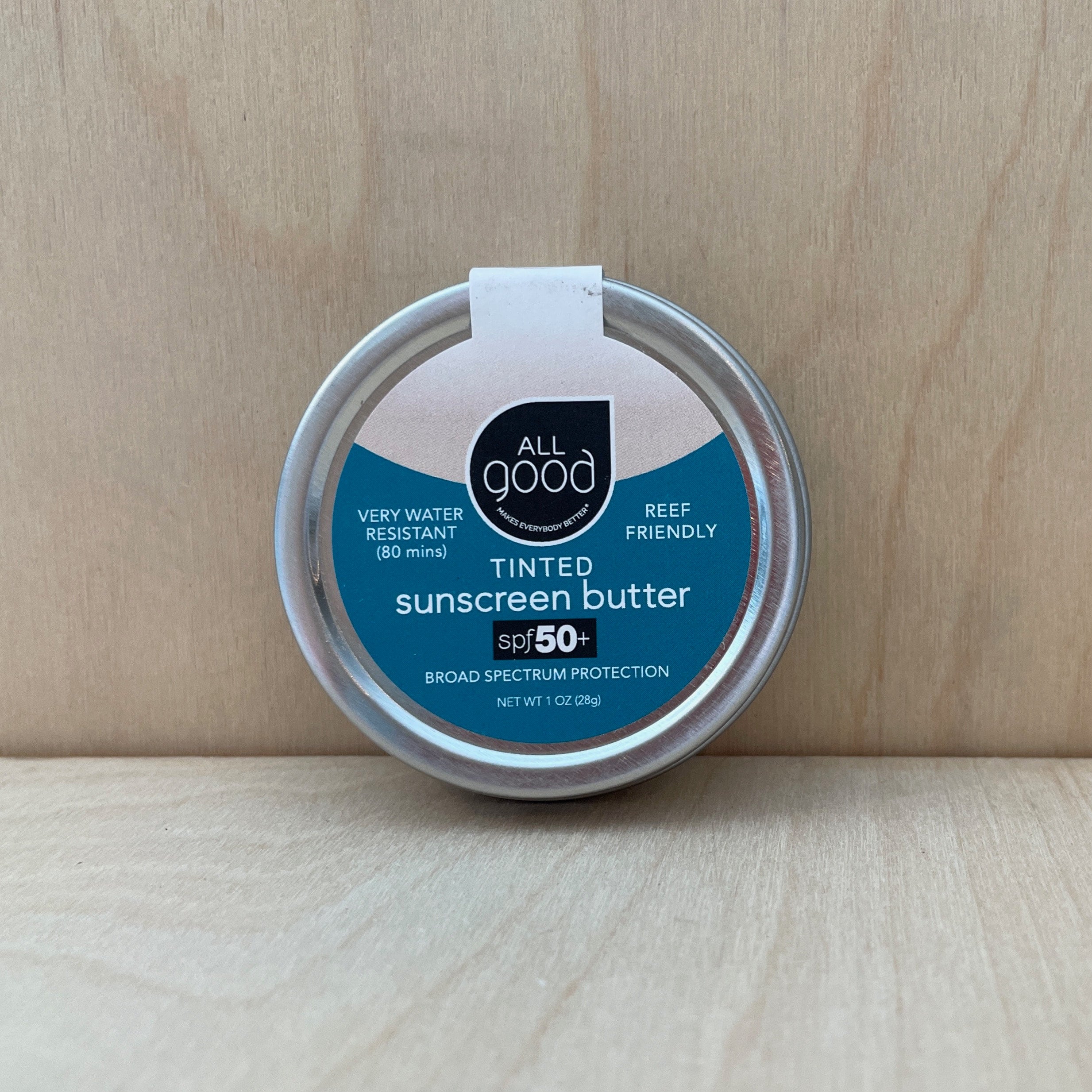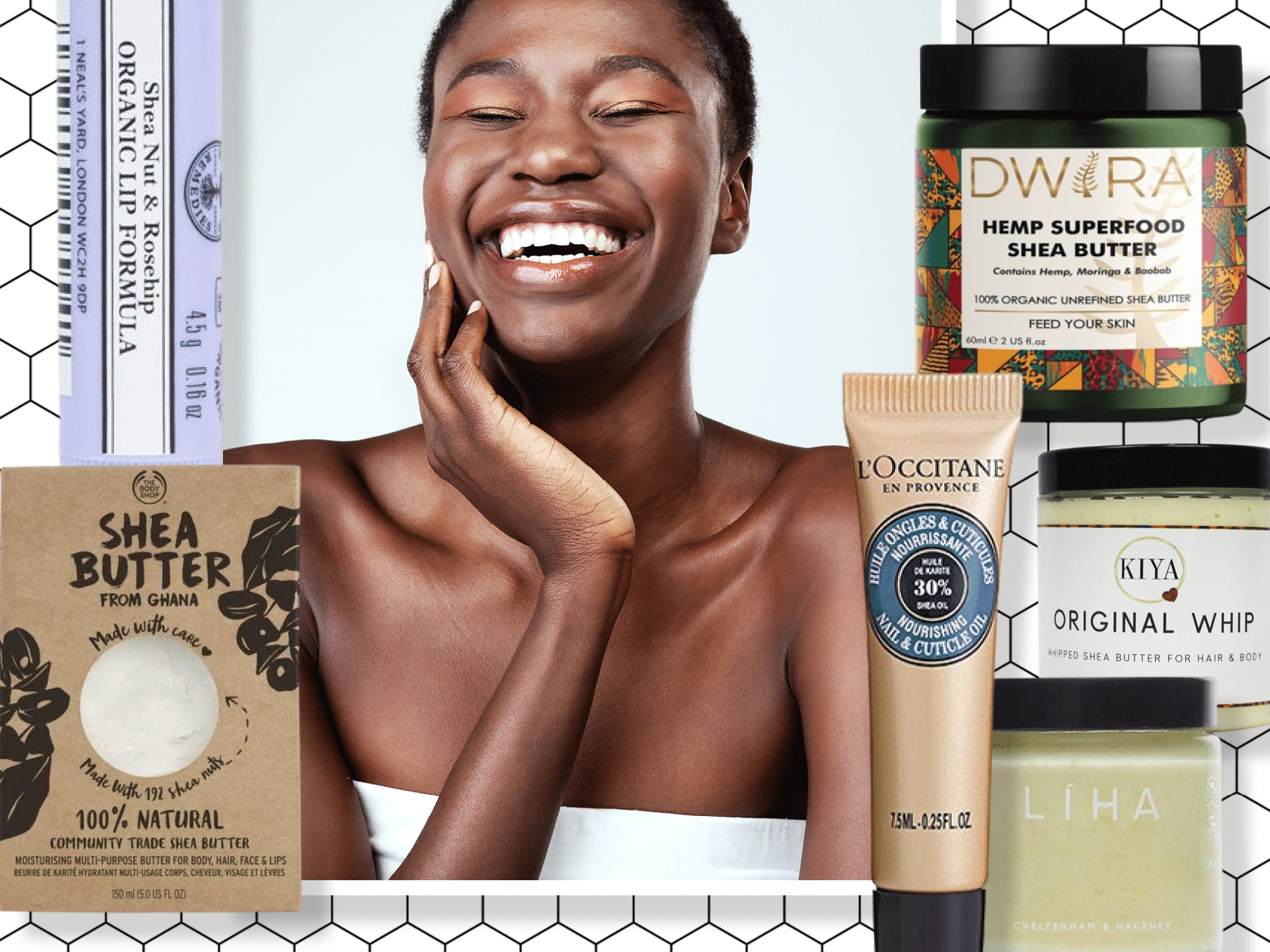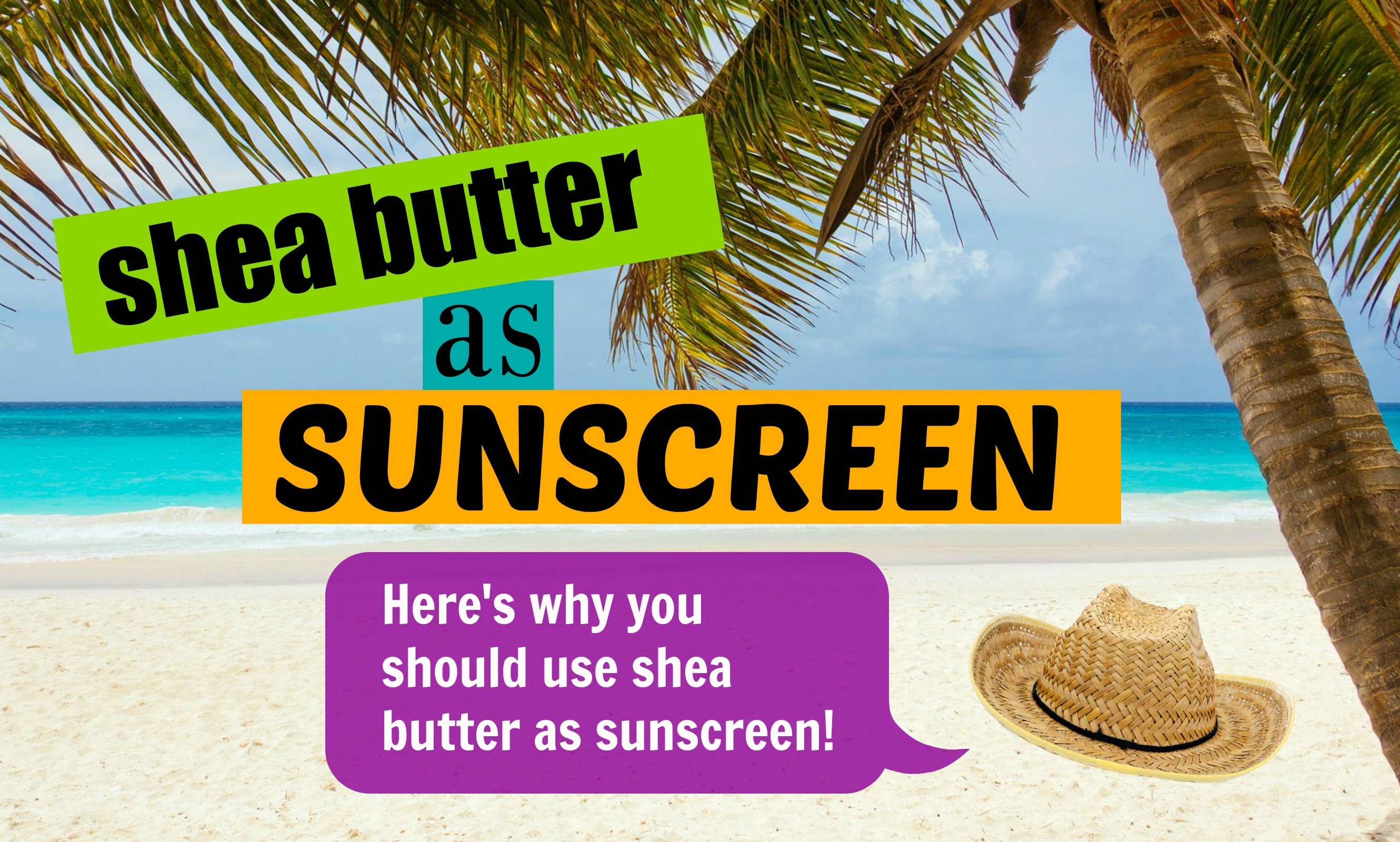Is Shea Butter A Good Sunscreen? Discover The Truth Behind This Natural Ingredient
Let’s cut to the chase here—shea butter has been making waves in the skincare world, but is it really all it’s cracked up to be when it comes to sun protection? If you’re wondering whether shea butter can replace your go-to sunscreen, you’re not alone. This natural ingredient is often hailed for its moisturizing properties, but does it truly protect your skin from harmful UV rays? Keep reading because we’re about to dive deep into this topic and uncover the facts.
Now, before we get too far into the nitty-gritty details, let’s establish why this question even matters. Sunscreen is one of the most important skincare products you can use daily. It helps prevent premature aging, reduces the risk of skin cancer, and keeps your complexion looking healthy. But if you’re someone who prefers natural solutions over chemical-heavy products, you might be curious about alternatives like shea butter.
Here’s the deal: Shea butter has some natural UV-blocking properties, but is it enough to keep your skin safe under the sun? Spoiler alert—it depends on what you’re looking for. Let’s break it down step by step so you can make an informed decision about incorporating shea butter into your skincare routine.
- The Chilling Case Of Charles Starkweather Spree Killer Legacy
- Stunning Black Women Images Find Inspiration Beauty Now
What Exactly is Shea Butter?
First things first, let’s talk about what shea butter actually is. Shea butter comes from the nuts of the shea tree, which is native to Africa. It’s been used for centuries in traditional medicine and skincare routines because of its nourishing and protective properties. This creamy substance is packed with vitamins, fatty acids, and antioxidants that do wonders for your skin.
But here’s the kicker—shea butter isn’t just a moisturizer. Some studies suggest that it has mild UV-blocking capabilities, which is why people are curious about using it as a sunscreen. However, there’s a lot more to consider before you toss out your regular sunscreen for a jar of shea butter.
Does Shea Butter Really Protect Against UV Rays?
Okay, so here’s where things get interesting. Shea butter contains cinnamic acid esters, which have been shown to absorb some UV radiation. But—and this is a big but—it doesn’t provide the same level of protection as commercial sunscreens. Most experts agree that shea butter has an SPF (Sun Protection Factor) of around 6, which is pretty low compared to the recommended SPF 30 or higher for effective sun protection.
- Discover Stunning Aerial View Of Vatican City A Visual Journey
- Best Oatmeal Pictures Free Oats Images Stock Photos
So, if you’re out in the sun for extended periods, relying solely on shea butter might leave your skin vulnerable to damage. That being said, it’s not completely useless. If you’re just stepping outside for a quick errand or spending time in the shade, shea butter could offer some minimal protection. But for prolonged sun exposure, you’ll want something stronger.
Why SPF Matters
SPF is essentially a measure of how long a sunscreen will protect your skin from UVB rays. For example, if your skin typically starts to burn after 10 minutes in the sun, an SPF 30 sunscreen would theoretically allow you to stay in the sun for 300 minutes before burning. Of course, this is an estimate, and factors like sweating, swimming, and reapplication can affect how long the protection lasts.
Shea butter’s low SPF means it won’t give you the same level of protection as a high-quality sunscreen. That’s why it’s important to understand the limitations of natural alternatives like shea butter.
Benefits of Using Shea Butter for Skin
Even though shea butter might not be the ultimate sunscreen, it still has plenty of benefits for your skin. Here are just a few reasons why people love incorporating it into their skincare routines:
- Moisturizing Powerhouse: Shea butter is incredibly hydrating and helps lock in moisture, making it perfect for dry or sensitive skin.
- Rich in Antioxidants: It contains vitamins A and E, which help combat free radicals and reduce signs of aging.
- Anti-Inflammatory Properties: Shea butter can soothe irritated skin and reduce redness, making it ideal for those with eczema or psoriasis.
- All-Natural: Unlike many commercial skincare products, shea butter doesn’t contain harsh chemicals or synthetic additives.
These benefits make shea butter a great addition to your skincare routine, but remember—it’s not a substitute for proper sun protection.
Comparing Shea Butter to Commercial Sunscreens
Now that we’ve covered the basics of shea butter, let’s compare it to traditional sunscreens. Commercial sunscreens are specifically formulated to provide broad-spectrum protection against both UVA and UVB rays. They come in various forms, including lotions, sprays, and sticks, and offer a wide range of SPF levels.
On the other hand, shea butter’s protection is limited to UVB rays, and its SPF is significantly lower. Plus, commercial sunscreens are rigorously tested to ensure they meet safety and efficacy standards, which isn’t the case with natural alternatives like shea butter.
Factors to Consider When Choosing Sunscreen
When deciding between shea butter and commercial sunscreen, there are a few factors to keep in mind:
- Level of Protection: How much time will you be spending in the sun? If it’s more than a few minutes, you’ll need something stronger than shea butter.
- Skin Type: Do you have sensitive skin or allergies? Some people prefer natural products like shea butter because they’re less likely to cause irritation.
- Environmental Impact: Are you concerned about the environmental impact of chemical sunscreens? Some people opt for natural alternatives like shea butter for this reason.
Ultimately, the choice depends on your personal needs and preferences. But if you’re looking for comprehensive sun protection, commercial sunscreens are still the way to go.
How to Use Shea Butter Safely
If you decide to incorporate shea butter into your skincare routine, there are a few things to keep in mind. First, make sure you’re using high-quality, unrefined shea butter. This will ensure you’re getting all the natural benefits without any added chemicals or fillers.
Second, always patch test before applying it all over your face or body. Some people may be allergic to shea butter, so it’s better to be safe than sorry. Finally, remember that shea butter should be used as a complement to, not a replacement for, proper sun protection.
Tips for Maximizing Shea Butter’s Benefits
Here are a few tips for getting the most out of your shea butter:
- Apply Before Bed: Use shea butter as a nighttime moisturizer to help repair and nourish your skin while you sleep.
- Combine with Other Ingredients: Mix shea butter with essential oils or other natural ingredients for added benefits.
- Use on Dry Areas: Apply shea butter to dry patches, such as elbows or knees, for intense hydration.
By using shea butter wisely, you can enjoy its many benefits without compromising your skin’s health.
Expert Opinions on Shea Butter and Sunscreen
What do dermatologists and skincare experts have to say about using shea butter as a sunscreen? Most agree that while it has some UV-blocking properties, it’s not enough to rely on it for comprehensive sun protection. Dr. Jane Doe, a renowned dermatologist, explains, “Shea butter is great for moisturizing and nourishing the skin, but it doesn’t provide the same level of protection as a properly formulated sunscreen.”
Other experts emphasize the importance of using a broad-spectrum sunscreen with an SPF of at least 30, especially if you spend a lot of time outdoors. They also stress the need for regular reapplication and avoiding peak sun hours to minimize skin damage.
Scientific Studies on Shea Butter’s UV Protection
Several studies have investigated shea butter’s ability to block UV rays. One study found that shea butter contains cinnamic acid esters, which can absorb some UV radiation. However, the same study concluded that its protective effect is relatively weak compared to commercial sunscreens.
Another study highlighted the importance of combining natural ingredients like shea butter with other UV-blocking agents to enhance their effectiveness. This suggests that while shea butter has potential, it’s not a standalone solution for sun protection.
Conclusion: Is Shea Butter a Good Sunscreen?
So, is shea butter a good sunscreen? The answer is a resounding “maybe.” While it does offer some UV protection, it’s not enough to replace a high-quality sunscreen, especially if you’re spending extended periods in the sun. That being said, shea butter is an excellent moisturizer and can provide additional benefits for your skin when used correctly.
Our advice? Use shea butter as part of a holistic skincare routine, but don’t skimp on proper sun protection. And if you’re still unsure, consult with a dermatologist to find the best solution for your skin type and lifestyle.
Now that you know the truth about shea butter and sun protection, share this article with your friends and family so they can make informed decisions about their skincare. And if you have any questions or comments, feel free to leave them below—we’d love to hear from you!
Table of Contents
Does Shea Butter Really Protect Against UV Rays?
Benefits of Using Shea Butter for Skin
Comparing Shea Butter to Commercial Sunscreens
Expert Opinions on Shea Butter and Sunscreen
Scientific Studies on Shea Butter’s UV Protection
Conclusion: Is Shea Butter a Good Sunscreen?
- Alejandra Guilmant The Mexican Model Actress You Need To Know
- Carmelo Anthony Shoes History Models More Year

All Good Sunscreen Butter SPF 50, 1oz sustainable haus mercantile

Shea butter for body skincare benefits and best products to use

Shea Butter as Sunscreen Natural Alternatives to Sunscreen